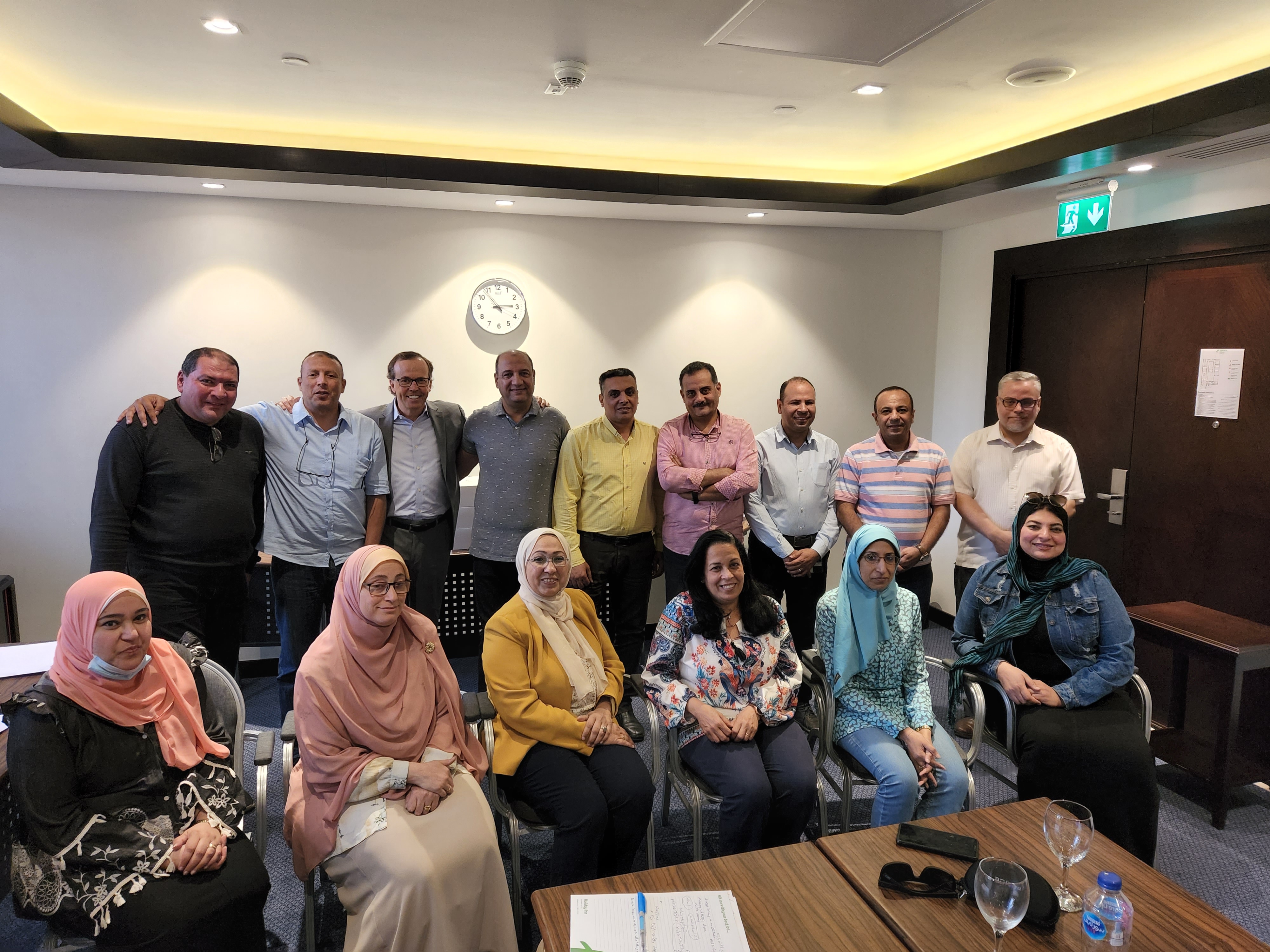A Nation Transforming Through STEM Education
April 3, 2024

“It’s been fulfilling to an extent I never thought possible,” says Michael Kozak of his experience working with STEM secondary schools in Egypt. Kozak, assistant clinical professor in the School of Education, represents Drexel on a team of five American universities leading an innovative program that is transforming the Egyptian model of STEM education. Through their expertise in curricular development, teacher education, and learning technologies, they are shaping education for generations of young Egyptians.
In 2011, a delegation from the Egyptian Ministry of Education visited the United States (U.S.) to learn more about STEM education. Coinciding with popular uprisings in Egypt and to promote long-term stability and prosperity, the Ministry saw the establishment of STEM schools as a way to equip new generations of youth with the skills to address the country’s “grand challenges,” including public health, clean water, and climate change , and to better compete in a dynamic labor market.
Until that time, the Egyptian education system was characterized by limited access to technology and traditional, rigid methods of teaching . Says Kozak, “The system was very lecture based, with the teacher viewed as the sage on the stage, as the smartest person in the room.”
Looking to reimagine the system as more student-focused, Ministry representatives consulted with Pennsylvania-based nonprofit 21STEM , an organization that partners with universities, including Drexel, to implement educational initiatives that empower students. Funded by USAID, 21STEM has been opening STEM secondary schools in Egypt since 2012. Kozak took up the work when he joined the School of Education faculty in 2019.
Describing one project within the initiative, Kozak says, “We have different U.S. universities, including Drexel, working with teachers on new curricula that is very project-based and collaborative. Teachers no longer have to be the person with all the knowledge. In fact, these students took a very rigorous exam to be at these schools and may know more than their teacher, so teachers now focus on being facilitators of knowledge.”
Kozak continues, “The new curricula use a transdisciplinary approach – teachers have to have an understanding of their own content area and in related content areas, and they also have to be willing to continually learn and innovate.”
A commitment to innovation extends to the administration of the STEM schools as well. He says, “My colleagues and I work with principals and academic deputies, who are like vice principals involved in curriculum and instruction. I’ll routinely talk to them about new technologies, like artificial intelligence (A.I.). If they are part of the most innovative schools in Egypt, they need to aware of technologies like A.I. We can help them keep up to date by suggesting free resources, because they’re not just teaching students for today. They’re teaching them for tomorrow.”
The second prong of the initiative, and where Kozak’s work mainly lies, involves working with Egyptian university professors, who are educating the teachers, principals, and academic deputies staffing these new STEM Schools. It’s part of a leadership certificate program designed to prepare teachers and administrators to lead within the new educational model.
Says Kozak, “Most university professors were never in a STEM school, so how could they instruct people to become teachers or principals of these new schools? Additionally, principals are not required to have a special certificate in Egypt, so now there’s a one-year certificate program, and I worked on the course syllabi for that.”
Thinking even more upstream, Kozak advocates for more resources from the Ministry of Education. “The whole STEM school concept is new, so we talk to people in the Ministry about what kind of resources these schools need,” says Kozak. “When we create syllabi, we include free and low-cost resources, but they’re not always the best or most current, so I’ve been advocating for more funding for newer resources.”
The task of implementing the STEM school initiative has been enormous but very effective. Twenty STEM schools have been established to date, and more are planned. “The results I’m seeing are very good as far as what the students are accomplishing,” says Kozak. “They’re now winning global awards. For example, at an international science fair in Atlanta two years ago, eight of their students captured top prizes. Saudi Arabia, a friendly competitor, captured 20, but the point is, Egypt is now looking at neighboring countries and knowing they can compete.”
In Egypt’s single-gender education system, establishing STEM schools for girls has had a tremendous impact on girls’ confidence in the STEM fields, and the rate of Egyptian women studying STEM is now higher than the global average . Says Kozak, “I love to see how confident these young women are. They confidently explain their work, and they know exactly what they want to study in university. When I visit STEM school graduates at university, these young women display the same confidence at the college level.”
Beyond the successes that the STEM school initiative has already produced, Kozak sees opportunity for further innovation. “The STEM schools are spread out across Egypt,” says Kozak, “but there are only five universities associated with them. So, students wanting to go to university sometimes travel eight hours to get there. I’ve been promoting the idea of offering both in-person and online versions of courses. That’s an idea right from Drexel – I teach an asynchronous online course at Drexel with grad students in different countries and time zones. We could do this for STEM students in Egypt.”
Kozak has interfaced with educators and administrators at all levels of the Egyptian education system, from the Ministry to local STEM schools, and he’s proud to have represented Drexel in that work. Says Kozak, “Drexel has had a positive voice in this work, and that reputation is visible, not only in Egypt but among the American universities we work with. There are other countries that have the same need as Egypt, real opportunities to expand this work. I’d love to be a part of it.”